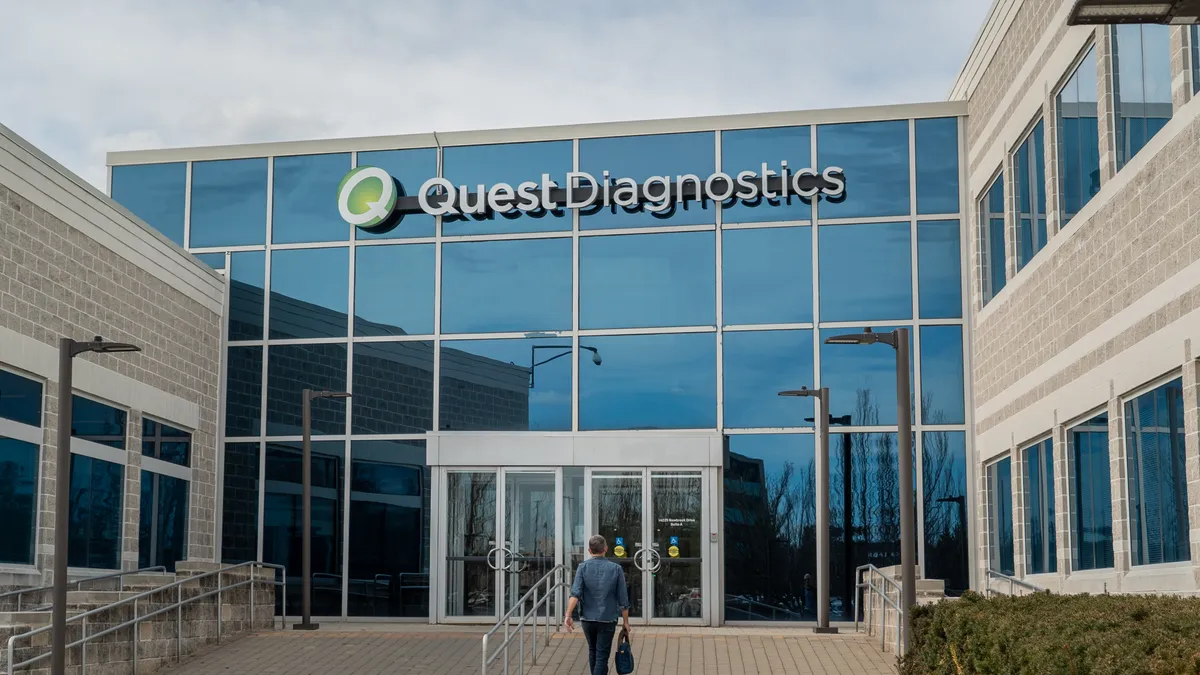Dive Brief:
- Quest Diagnostics launched a consumer-facing version of its AD-Detect test to assess Alzheimer’s disease risk.
- The test, which costs $399, assesses levels of amyloid beta proteins in a patient’s plasma. The test cannot diagnose Alzheimer’s disease and is not cleared by the Food and Drug Administration, but is offered as a laboratory-developed test.
- As new Alzheimer’s drugs reach the market, test makers have begun offering assays to help people determine earlier whether to seek further testing or treatment.
Dive Insight:
Quest’s new consumer-facing test is based on its AD-Detect Amyloid Beta 42/40 Ratio, a laboratory-developed test made available for physicians in early 2022. The consumer version of the test is offered through Quest’s consumer-facing website, where people can order the test online through a physician and schedule a blood draw at one of Quest’s locations.
The test is intended to be used by people who show signs of mild cognitive impairment, such as memory loss, and people who have a family history of Alzheimer's disease. It measures the ratio of two peptides of amyloid beta, Aβ42 and Aβ40, in plasma. It cannot diagnose Alzheimer’s, but can be used to help people decide with a doctor whether to seek additional testing and assessment, the company said.
"We are seeing much attention on emerging therapies for Alzheimer's disease, but with new treatment options will come the need to make screening and diagnosis more widely available. Blood tests like AD-Detect hold incredible potential to make Alzheimer's disease risk assessment both accessible and convenient," Michael Racke, Quest’s medical director of neurology, said in a statement.
The FDA earlier this month approved Leqembi, a drug developed by Esai and Biogen to slow cognitive decline for patients who are in the early stages of Alzheimer’s disease.
Other test-makers have begun to develop diagnostic tools to detect Alzheimer’s disease earlier. Last month, Roche received FDA clearance for a test intended to help speed up diagnosis.











